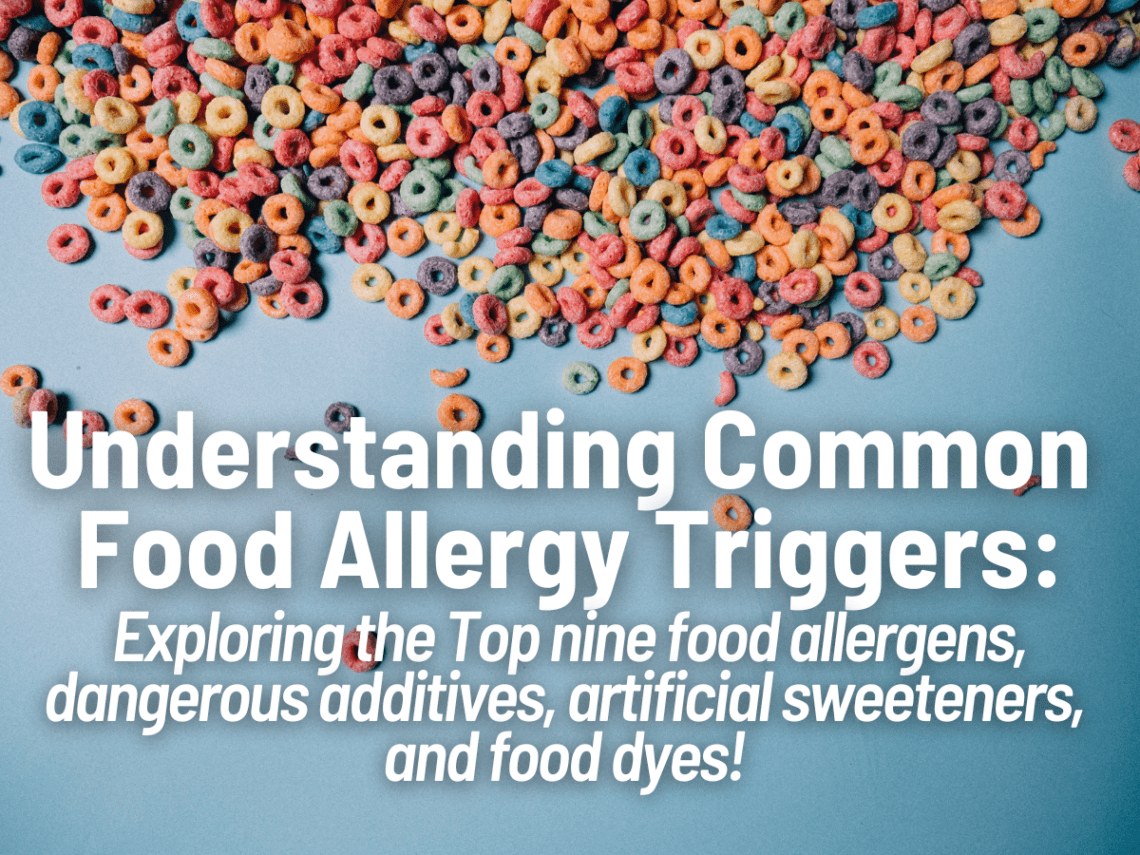Histamine is a chemical found in some of the body’s cells that cause many of the symptoms of allergies or histamine intolerance such as a runny nose or sneezing.

When a person is allergic to a particular substance, such as food or dust, the immune system mistakenly believes that this usually harmless substance is actually harmful to the body. Inducing allergy symptoms like itching, swelling, congestion, hives, and even full-on anaphylaxis (a severe allergic reaction that includes potentially life-threatening effects such as your airways closing) in some cases.
We unconsciously observe Emory after she eats anything. Especially if we’re introducing a new food.
Her more minor allergy symptoms present themselves in the form of itchy eyes/mouth, runny nose, and/or dry cough. The majority of these symptoms occur when she eats foods that 𝐭𝐫𝐢𝐠𝐠𝐞𝐫 𝐡𝐢𝐬𝐭𝐚𝐦𝐢𝐧𝐞 𝐫𝐞𝐥𝐞𝐚𝐬𝐞 in the body like tomatoes, bananas, certain additives, and food dyes!

Foods that trigger histamine are different from foods that are HIGH in histamine.
Foods that trigger histamine release:
- alcohol
- bananas
- tomatoes
- Avocado
- Spinach
- Eggplant
- Wheat germ
- Beans
- papaya
- chocolate
- citrus fruits
- nuts,
(specifically walnuts, cashews, and peanuts)
- food dyes and other additives
When these symptoms were initially noticed we immediately eliminated those triggers from her diet. No homemade ketchup, banana bread, BBQ sauce, etc… but after learning more about *histamine I’m wondering if she may have Histamine Intolerance.
Signs of histamine intolerance include:
- Gastrointestinal Issues
- Headaches and Dizziness
- Nasal congestion, sneezing, and respiratory symptoms
- Rashes, eczema, and itchy skin
- Racing heart rate
What’s the difference between a food allergy and histamine intolerance?
The former can be much more severe and consistent. Each time a certain food is eaten the same symptoms present themselves.
Histamine Intolerance may not present itself each time a food is eaten. The levels of this chemical can vary, even in the same type or brand of food, depending on factors like how the food was harvested, processed, and stored.
This point is possibly the reason Emory can tolerate spaghetti sauce but not ketchup.
Because I’m unsure I plan to obtain more clarity from an allergist. Especially, if we’re restricting nutritious foods that can safely be enjoyed.
* It’s important to note that Food allergies can be life-threatening; food intolerances are typically not as severe.



